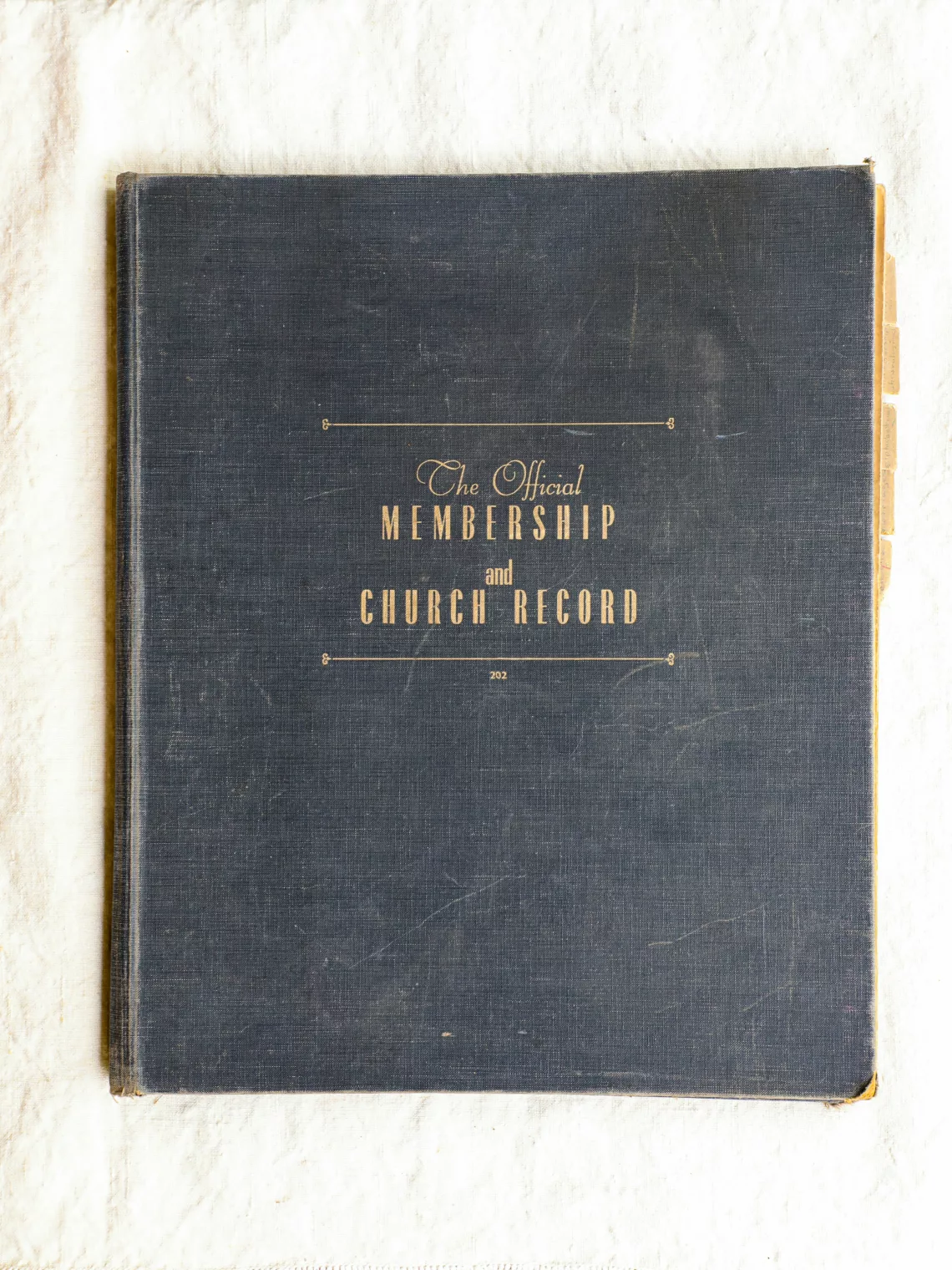Church covenants are an important tool for promoting regenerate church membership and healthy churches. Church membership covenants are literally as old as the early church and are common practice throughout Baptist history. Any conversation regarding church membership covenants prompts several questions: What is a church covenant? Are church covenants biblical? Are church membership covenants common practice among Baptist churches? This post seeks to answer these three questions.
A church covenant is simply a promise among the church members regarding how they will conduct themselves in private, in the life of the church, and in their public actions in the community. In his book entitled Baptist Church Covenants, Charles Deweese writes:
A church covenant is a series of written pledges based on the Bible which church members voluntarily make to God and to one another regarding their basic moral and spiritual commitments and the practice of their faith.1
Church members base such pledges on love for God, love for their brothers and sisters in Christ, love for their neighbors, and the desire to hold each other mutually accountable. Membership covenants are vital to promoting church health and healthy church membership. Deweese mentions the health benefits of church membership covenants stating:
Faithful attention to the contents of a carefully formulated, biblically based covenant can deepen the quality of a church’s fellowship, sharpen a church’s awareness of vital moral and spiritual commitments, clarify biblical standards for Christian growth, and create and maintain a disciplined church membership.2
It’s all well and good to mention the benefits of church membership covenants, but are they biblical?
Biblical Foundation
Church membership covenants find their roots in the covenants found in the Old and New Testaments and in the practices of the early church. In Exodus, Moses calls the people to make a covenant before the Lord regarding their conduct. Moses writes:
He then took the covenant scroll and read it aloud to the people. They reponded, “We will do and obey all that the LORD has commanded.” Moses then took the blood spattered it on the people and said, “This is the blood of the covenant that the LORD has made with you concerning all these words.”3
During the reign of King Josiah, God’s people made a covenant renewal. Describing this event, the Bible says:
Next the king stood by the pillar and made a covenant in the Lord’s presence to follow the LORD and to keep his commandments, his decrees, and his statutes with all his heart and with all his soul in order to carry out the words of this covenant that were written in this book; all the people agreed to the covenant.4
During the time of Nehemiah, the people renewed their covenant with God and each other. Describing this renewal, Nehemiah writes:
In view of all of this, we are making a binding agreement in writing on a sealed document containing the names of our leaders, Levites, and priests.5
From these Old Testament accounts, we see that the covenants and covenant renewals involve both the congregation of faith and each individual making commitments to the point they affix their names to the covenant.
The New Testament speaks of the new covenant that members of the church entered into through the blood of Jesus Christ. Regarding local church membership and the new covenant, church theologian John S. Hammett asserts that “the descriptions of local churches in the New Testament assume that these local, visible congregations are composed of believers only.”6 New believers entered into local church membership through baptism. At their baptisms, these early believers made confessions and commitments to the new covenant and to living their lives in accordance with it. Regarding this practice, Dewees writes:
Church membership in the New Testament times certainly included entry into a covenantal relationship with God and fellow believers. New Testament baptism may have involved a verbal covenant that the one being baptized made with the Christian community and with Christ.7
The New Testament points to such verbal covenants in several places. In his letter to believers in Rome, Paul points to such a confession in baptism stating:
Therefore we were buried with him by baptism into death, in order that, just as Christ was raised from the dead by the glory of the Father, so we too may walk in newness of life. If we have united with him in the likeness of his death, we will certainly also be in the likeness of his resurrection. For we know that our old self was crucified with him so that the body ruled by sin might be rendered powerless so that we may no longer be enslaved to sin, since a person who has died is freed from sin.8
He mentions such a confession in his letter to Timothy, admonishing:
Fight the good fight of faith. Take hold of eternal life to which you have made a good confession in the presence of many witnesses.9
Jesus also points to the new covenant and covenant renewal in relation to the Lord’s Supper. Regarding his words to the disciples, Paul writes:
In the same way also he took the cup, after supper, and said, “This cup is the new covenant in my blood. Do this as often as you drink it, in remembrance of me. For as often you eat this bread and drink this cup, you proclaim the Lord’s death until he comes.”10
We know that the early church used the Lord’s Supper as a time for covenant commitment and renewal by reading Pliny’s account to the Emperor Trajan in 112AD. He writes:
They asserted, however, that the sum and substance of their fault or error had been that they were accustomed to meet on a fixed day before dawn and sing responsively a hymn to Christ as to a god, and to bind themselves by oath, not to do some crime, but not to commit fraud, theft, or adultery, not falsify their trust, nor to refuse to return a trust when called upon to do so. When this was over, it was their custom to depart and to assemble again to partake of food — but ordinary and innocent food.11
Finally, the author of Hebrews alludes to local church covenant membership and accountability in his remarks regarding the habit of some people, professing the name of Christ, to be absent from worship and accountability. He writes:
Let us hold on to the confession of our hope without wavering, since he who promised is faithful. And let us watch out for oner another to provoke love and good works, not neglecting to gather together, as some are in the habit of doing, but encouraging each other, and al the more as you see the day approaching.12
From these examples from the Old and New Testaments and from early church history, one can see a strong biblical foundation for the use of church membership covenants in the local church.
Yet, we still have not answered the question, “Are church membership covenants evident in Baptist history and life?”
Baptist Foundations
As a student and professor of Baptist history, I could present numerous examples of church membership covenants from Baptist congregations. For the sake of this post, as I pastor a church in South Carolina, I will focus on Baptist churches in that state. The oldest Baptist church in the South, South Carolina, and the Southern Baptist Convention is First Baptist Charleston in Charleston, SC. That church’s guiding document regarding membership states:
Being thus satisfied with each other’s graces and qualifications, and united in the bond of love they should give up themselves to the Lord and one another by the will of God, 2 Cor. 8:5, by subscribing a written covenant consistent with the Word of God, Isa. 44:5, thereby binding and obliging themselves to be the Lord’s to walk in all his commands and ordinances, and in all respects to behave towards each other as brethren, agreeable to the spiritual relation they now enter into.13
Other Baptist churches in South Carolina history actively used church membership covenants including Ashley River Baptist Church (1736), Welsh Neck Baptist Church (1738), Cashaway Church (1767), Turkey Creek Church (1785), and Salem Church (1812). Churches during this era required that individual candidates for membership sign the church covenant as a personal commitment to its requirements for church members. Regarding this practice, Deweese writes:
A fifth trend among Baptists in America prior to the 1830s is that they took covenanting seriously. Several kinds of evidence show the significance which these Baptists attached to covenantal concepts and practices. For one thing, they tended to sign their covenants. This practice enhanced the level of commitment which church members gave to their covenantal pledges.14
After the 1830s churches still required individuals to verbally affirm with the pastor their personal commitment to the church covenant as a requirement for membership. In the covenant he wrote for Citadel Square Baptist Church (1868) Richard Furman included the following interchange between the pastor and candidate for membership after the reading of the covenant:
Question–Do you approve of and embrace this covenant?
Answer–I do.15
The dating of these covenants begs the question, “Do modern Baptist churches still require candidates for membership to affirm individually church membership covenants?”
The short answer to this question is, “Yes.”
Numerous Southern Baptist Churches require candidates for membership to affirm individually church membership covenants. For the sake of brevity, I will present one example. Mark Dever, pastor of Capitol Hill Baptist Church (SBC), describes that church’s practice, stating:
In my study I have a booklet that our denomination has kept in print for more than sixty years. Its purpose is to encourage new church members. The first thing in the book is an example of a church covenant. At the bottom of the sample covenant is a place for the person to sign. Such signing of a covenant is not a new practice; it simply fell into disuse in the middle decades of the twentieth century. But earlier in American history, such signing was the general practice. In our church, hanging in a prominent place are the signatures of the founding members of the church, underneath the covenant to which they subscribed when they joined the church. Consider such signatures, and the seriousness of them. These men and women chose to covenant together in response to God’s grace in their lives. Do we do any less today in joining a church?16
Whether it involved verbal affirmation between a pastor and a membership candidate or the signing by individuals of a church membership covenant, it is clear that such individual affirmation of church membership covenants is supported by Scripture, Baptist history and practice, and promotes a healthy church with healthy church membership.
(For more content like this, click here.)
- Charles W. Deweese, Baptist Church Covenants (Nashville: Broadman Press, 1990), viii. ↩︎
- Ibid., x. ↩︎
- Exodus 24:7-8 CSB ↩︎
- 2 Kings 23:3 CSB ↩︎
- Nehemiah 9:38 CSB ↩︎
- John S. Hammett, Biblical Foundations for Baptist Churches, (Grand Rapids: Kregel Publishing, 2005), 84. ↩︎
- Deweese, Covenants, 18. ↩︎
- Romans 6:4-7 CSB ↩︎
- 1 Timothy 6:12 CSB ↩︎
- 1 Corinthians 11:25-26 CSB ↩︎
- https://christianhistoryinstitute.org/study/module/pliny ↩︎
- Hebrews 10:23-25 ↩︎
- Baptist Association in Charleston, SC, A Summary of Church Discipline Shewing the Qualifications and Duties of the Officers and Members of a Gospel Church, (Charleston:The Baptist Association of Charleston, 1774). ↩︎
- Deweese, Covenants, 97. ↩︎
- Ibid., 165-166. ↩︎
- Mark Dever, Nine Marks of a Healthy Church, (Wheaton: Crossway, 2013), 172. ↩︎




